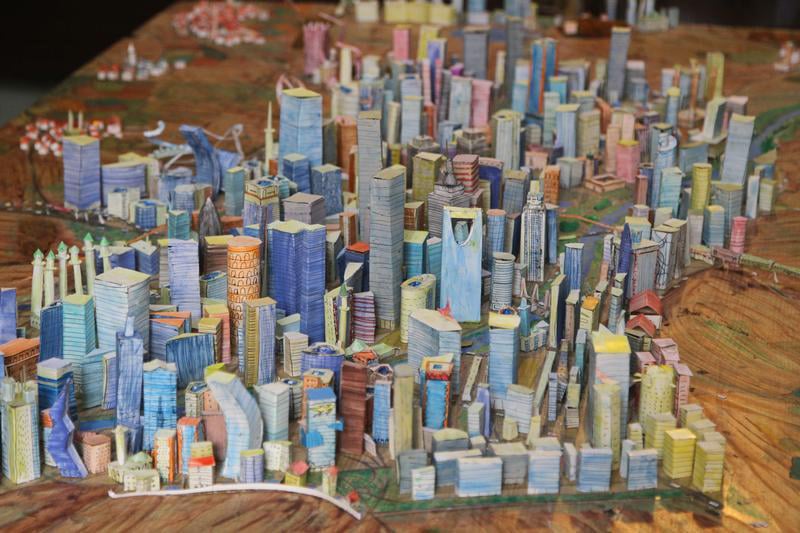Despite Reports of Withdrawal of Syria’s Property Law, Concerns Remain

A small scale model built by 14-year-old Syrian Mohamed Qutaish, representing the way he imagines the reconstruction of Aleppo, Aleppo, Syria, August 31, 2015. © 2015 Reuters
Languages
Available In
Sara Kayyali
Syria Researcher, Middle East and North Africa Division at Human Rights Watch
On October 18, a high-level UN official reported that Syria’s notorious Law 10 – which allows authorities to seize property without due process or adequate compensation – has been withdrawn by the Syrian government.
Neither the Syrian government nor the Russians – which the UN cited as its source – have made an official announcement about a change in the status of the law and no word of it on the Syrian parliament’s website. As recently as October 4, local officials continued to discuss re-development projects in these areas under the guise of Law 10.
If true, the Syrian government should provide evidence of the law’s withdrawal and stop any appropriations that are taking place under the authority of Law 10.
The repeal of the law would be an important first step to protecting the property rights of thousands of Syrians. Law 10, however, is only one of many legislative instruments the Syrian government is using to unjustly confiscate property. These include Decree 66, Law 10’s predecessor, which has been used to target and expel residents of previously anti-government held areas, and Decree 63 which empowers the Ministry of Finance to seize assets of those individuals who fall under the Counterterrorism Law of 2012, a dangerously broad law that unfairly criminalizes a large segment of the population without due process rights or fair trial.
Even if Law 10 is rescinded, the government’s allies, neighbouring countries, and the UN need to keep pressure up on the Syrian government to end unlawful appropriation and displacement practices. Residents from areas that have been re-taken by the government continue to face arbitrary and incomprehensible restrictions on return to their homes and towns of origin, and the government continues to demolish their property. In a world where actions speak louder than words, this should remain a cause of utmost concern for the many interested interlocutors, particularly states and donors interested in seeing refugees return and reconstruction start.
If the law is indeed withdrawn, the Syrian government needs to work closely with affected communities and independent property rights experts to ensure that no Syrian is unjustly deprived of their homes, and that they have something to return to in dignity and safety.
The original article was published on the Human Rights Watch website


